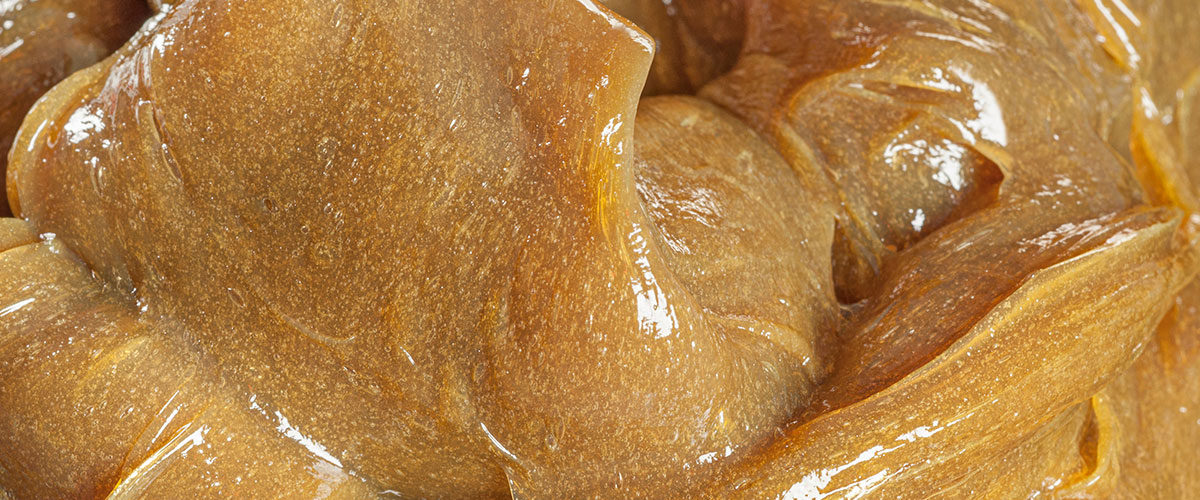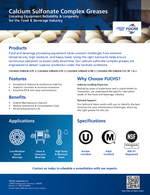Are Calcium Greases a Suitable Alternative to Lithium Greases?
Lithium has been a popular thickener choice in grease for decades. It was often the preferred thickener for automotive wheel bearings, constant velocity (CV) joints, industrial bearings, and for multipurpose applications because it performs well at high temperatures, possessed good shear stability, and moderate water resistance, amongst other benefits.
According to a report from Benchmark Mineral Intelligence, the lithium price index increased 182.6% year-over-year from December 2021 to December 2022 as more lithium was being diverted to support the development of batteries for electric vehicles. This in turn raised the cost of lithium-thickened lubricants and led many manufacturers to consider more reliable, alternative solutions. While pricing and availability of lithium has since stabilized, there will undoubtedly be increased demand in the years to come. FUCHS is prepared for this with our calcium-based grease portfolio with respect to performance and costs.
In addition to cost and performance, sustainability must also be considered. While advancements in lithium extraction are still being made, sourcing lithium is currently a lengthy and unsustainable process. Sites extracting lithium require hundreds of thousands of gallons of water per hour and the long-term impact of this on the local environment remains uncertain. Calcium is a far more abundant resource with diversified extraction methods.
Historically, lithium greases have been preferred over calcium greases because they are more thermally resistant (having higher dropping points) than their calcium counterparts. However, recent advancements in lubrication technology have led to the development of calcium greases that offer similar or improved performance to their lithium counterparts.
Calcium Thickened Greases
There are several types of calcium greases including calcium, calcium complex, and calcium sulfonate complex.
Calcium and calcium complex are classified as soap thickeners whereas calcium sulfonate complex is classified as a non-soap thickeners (micellar structure). These greases differ from calcium greases because they include additional dicarboxylic acids also referred to as “complexing agents” which enhance certain performance properties when added to a formulation. There is a vast array of complex agents, and they can be proprietary to a company. Complex greases have stronger molecular bonds in a cross-linked structure which makes them more stable with better performance in a variety of areas including shear stability, water resistance, and thermal stability, to name a few.
Calcium sulfonate complex greases are the most advanced calcium lubricants offered at FUCHS. These greases exhibit exceptional thermal and mechanical stability, superior corrosion protection, and excellent water resistance. For the food and beverage industry, NSF H1 calcium sulfonate complex greases from our CASSIDA product line are also available.
Calcium vs Lithium
With so many different types of calcium and lithium thickeners it can be difficult to know which is right for you. We’ve created a handy guide outlining the differences between these lubricants in key performance areas. These ratings indicate the performance of the thickener on its own. Additives can always be added to these formulations to improve upon certain performance characteristics.
| Properties | Lubricants | ||||
|---|---|---|---|---|---|
| Lithium | Lithium Complex | Calcium | Calcium Complex | Calcium Sulfonate Complex | |
| EP Performance | Fair | Fair | Fair | Fair | Excellent |
| Antiwear Performance | Fair | Fair | Fair | Fair | Fair |
| Shear Stability | Fair | Fair | Fair | Fair | Excellent |
| Low Speed Performance | Fair | Fair | Fair | Good | Excellent |
| High Speed Performance | Fair | Good | Fair | Good | Fair |
| Water Resistance | Fair | Fair | Good | Good | Excellent |
| Corrosion Resistance | Fair | Fair | Fair | Fair | Excellent |
| Dropping Point | Good | Very Good | Good | Very Good | Excellent |
| High Temperature Performance | Fair | Good | Fair | Good | Excellent |
| Oxidation Resistance | Good | Good | Good | Good | Good |
| Low Temperature Torque | Good | Good | Good | Good | Good |
| Pumpability | Good | Good | Good | Good | Fair |
| Price | $$ | $$$ | $ | $$ | $$ |
Making the Switch from Lithium to Calcium
Calcium greases are more sustainable, less expensive, and often reduce risk to your operations due to a more reliable supply chain. Also, these lubricants are often compatible with lithium grease, meaning they can be easily replaced. A lubrication expert from FUCHS will be able to work with you to determine if calcium grease is appropriate for your application and which lubricant will best suit your needs.



